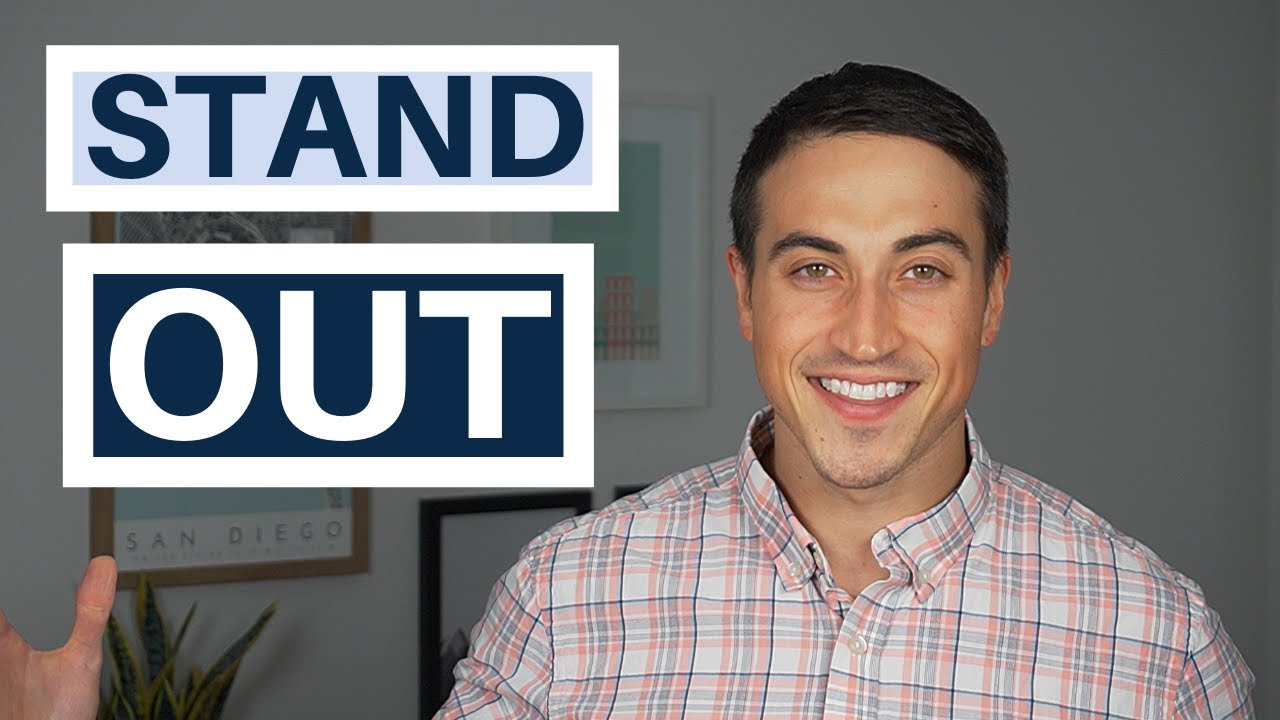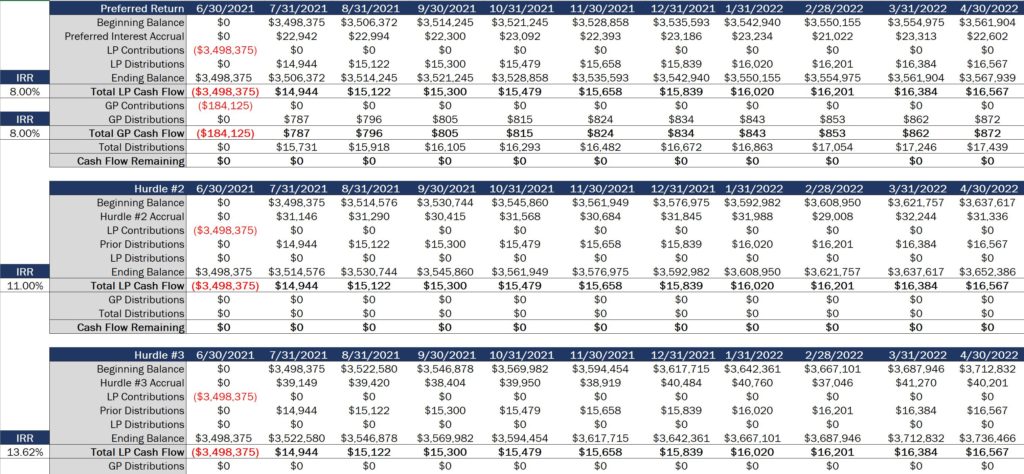
How To Stand Out In A Real Estate Interview

So you’ve gone through the application process, submitted your resume and cover letter, and you got the call that you’ve landed an interview for your dream job.
And this is great news, but most likely, you’re not going to be the only one being interviewed for that same role (even on that same exact day).
Especially if you’re just graduating from college or graduate school, your resume itself probably looks pretty similar to the people who have also made it to the interview round with you, which means that you need to find a way to separate yourself from the pack on interview day itself.
This can can sound pretty intimidating on the surface, but it’s not quite as difficult as you might think.
And to help with this process, in this article, we’ll walk through four ways to stand out in a real estate interview, and what you can do to stand out from the competition when looking for roles in CRE. You can also watch the video version right here:
How Many Other People Are They Interviewing?
If you’ve gotten to the interview stage for a position you’ve applied for, you’ve already beat the odds.
In most cases, at that point, you’ve made it further than about 98% of other job candidates.
According to Glassdoor, job postings receive about 250 resumes on average, and out of that number, only about 4-6 candidates will be brought in for an interview.
This is great news for you if you’ve made it to the interview phase, because you know that the company is already interested in what you have to offer based on what they see on paper.
However, that still means that you likely have 3-5 other people you’re competing with who the company also likes based on what they see on paper.
Fortunately, there are a few big things you can do to stand out among the competition, even with similar experience levels to your peers, and to maximize your chances of landing an offer every time you go through this process.
Know The Real Estate Company You’re Interviewing With
First, and maybe most importantly, number one on this list is to go into the interview knowing as much as you can about the company you’re applying for, and about the team you’ll be working with.
You’d be surprised at how many people go into an interview knowing almost nothing about the firm they’re interviewing for, and this is a layup when interviewing for real estate jobs.
As soon as you’ve been invited for an interview, you should be going to the company’s website and looking through their portfolio, understanding what product types the company invests in, what the company’s business plan looks like and strategy looks like overall, and what markets and cities the company has a presence in.

Many firms will also have information on their capital partners and investors, and also a “news” tab, which is going to show recent transactions the company has been involved in, articles that company executives have been quoted in, or even podcasts or interviews that company leaders have done recently.
These things allow you to do a little bit more digging and get to know the company and what they do, in much more detail than what you’d find out with just what’s available on their website.
Real Estate Interviews Are About The People, Too
One of the most important pieces of company research, aside from researching the company itself, is also researching the people on the team you’ll be working with, specifically those people you’ll be interviewing with on the big day.
Just taking a few minutes to scan through the LinkedIn profiles of your hiring manager and anyone else you’ll be interacting with on interview day will give you a huge leg up here.
The goal is to get a general idea of what these people’s backgrounds are, what their career trajectories have looked like, and maybe even to give you a talking point or two when you have some time to kill between interviews to keep the conversation flowing.

What you don’t want to happen is for you to be caught off-guard by an interviewer asking you something along the lines of, “Why do you want to work for our company?”
Being excited about a role and growing within a company is a prerequisite for getting hired at most shops. If you don’t have a clear answer to this question showing that you’ve done your research on the firm, that’s definitely not going to show well in a competitive interview process.
Have A List of Questions Ready
Once you’ve done your research on the company and the specific team that you’ll be working with, the second point on this list, on a similar note as the point we just talked through, is to have a list of questions ready to ask at the end of the interview.
Just like researching the firm shows interest and commitment to the role, asking questions shows you took the time to prepare and research the company and the position that you’re applying for.
The goal here is to show that you’re serious about joining the team if you do receive an offer, and that you’re genuinely doing everything you can to determine if the role is the right fit for you at the end of the day.
Questions around the company culture, opportunities for growth or career development within the firm, goals or future plans of the company as a whole are great to add here. Any concerns you have that would affect whether or not this is a company you’d want to work for and grow within are all good things to get clarity on at this point in the conversation.
How Many Questions Should You Be Asking?
You definitely don’t want to drag this on too long here, so usually somewhere around 3-4 questions is perfect to bring to an interview.
With that said, you do want the company to know you’re being intentional about whether or not the position is the right fit for you, so don’t hold back on the big things that would make or break your decision at the end of the day.
Bring A Real Estate-Related Work Sample To The Interview
Once you’ve researched the company and put together a list of questions to ask, the third way I’d recommend standing out is to bring a sample of your work to the actual interview, and make sure that work is directly related to what you’d be required to produce in the position.
This could be a printed version of a real estate pro forma you’ve built, a waterfall model you’ve created, sample investor materials you’ve put together, or any other deliverables which would be relevant to your day-to-day responsibilities in the position you’re interviewing for.

You can also follow-up after the interview by sending the Excel file for a model or the PDF of a presentation along with a thank you note. This shows both your ability to step into the role and produce high quality work from day one, but also your initiative in giving the employer a free “look” into what you’re able to do before they take an expensive chance on you by hiring you for the position.
Including this information on your resume is definitely helpful (and necessary), but employers know that people can sometimes embellish their experience or skill sets on paper. Voluntarily presenting a live sample of your work can help prove what you can do and separates you from other candidates who are just “talking the talk” during the application and interview phase.
Send A Thank You Note After The Interview
Finally, once you’ve prepared your work sample, prepared your questions, and researched the company in-depth, the last thing I’d recommend to stand out in an interview is extremely easy, but also very often forgotten, and that is to send a thank you note.

People often get nervous about this or feel like they need to send hand-written letters and chocolates to each person that interviewed them, but this process doesn’t need to be complicated or overly drawn out.
I have a video on exactly what I recommend including within a thank you note which is linked here, but at a high level, all this needs to be is a short and sweet email the morning after the interview occurred.
You might be thinking that everyone does this and it doesn’t matter, but it turns out that everyone doesn’t do this, and it definitely does matter.
In fact, a recent study done by Careerbuilder showed that only 25% of interviewees send a thank you note after an interview, and 57% of recruiters surveyed said that the lack of a thank you note after an interview automatically disqualified a candidate from the rest of the hiring process.
Sending a thank you note is quick and easy, and while it won’t guarantee you a role, not sending one can significantly decrease your chances of receiving an offer.
Taking a few minutes the next day to follow up is another simple, no-brainer step to make sure you’re doing everything you can to maximize your chances of success during the interview process, and is something I highly recommend.
Get Interviewer Contact Information During The Interview
One thing to note with this strategy is that you’ll need to make sure that you get the business cards of everyone who interviews you, if at all possible.

It’s tough to follow up without an email address, and even if you can take a guess based on the email addresses of other people within the company, your best bet is still to collect everyone’s card that you meet with to make sure that all of your emails get to everyone intended.
Even in a competitive job market, and even if your experience is at right around the same level as your competition, these four things are going to help you stand out in a real estate interview, and help you land more offers after getting to this phase.
Excel Real Estate Financial Modeling Interview Exam Prep
If you have an interview coming up for a real estate analyst or associate position, there’s a good chance that an Excel exam might be given to you during that process. And if you want to make sure you’re prepared for that exam, or if you just want some additional one-on-one help in your corner to get answers to your questions and prepare for the big day, make sure to check out Break Into CRE Academy.
Your membership in the Academy will give you instant access to our complete library of real estate financial modeling and analysis courses, practice Excel interview exams and training files, and additional one-on-one email-based career coaching to help you navigate whatever step of the job search process you’re in.
So thanks so much for reading and I hope this was helpful if you’re preparing for an interview or going through the application process. Good luck!


